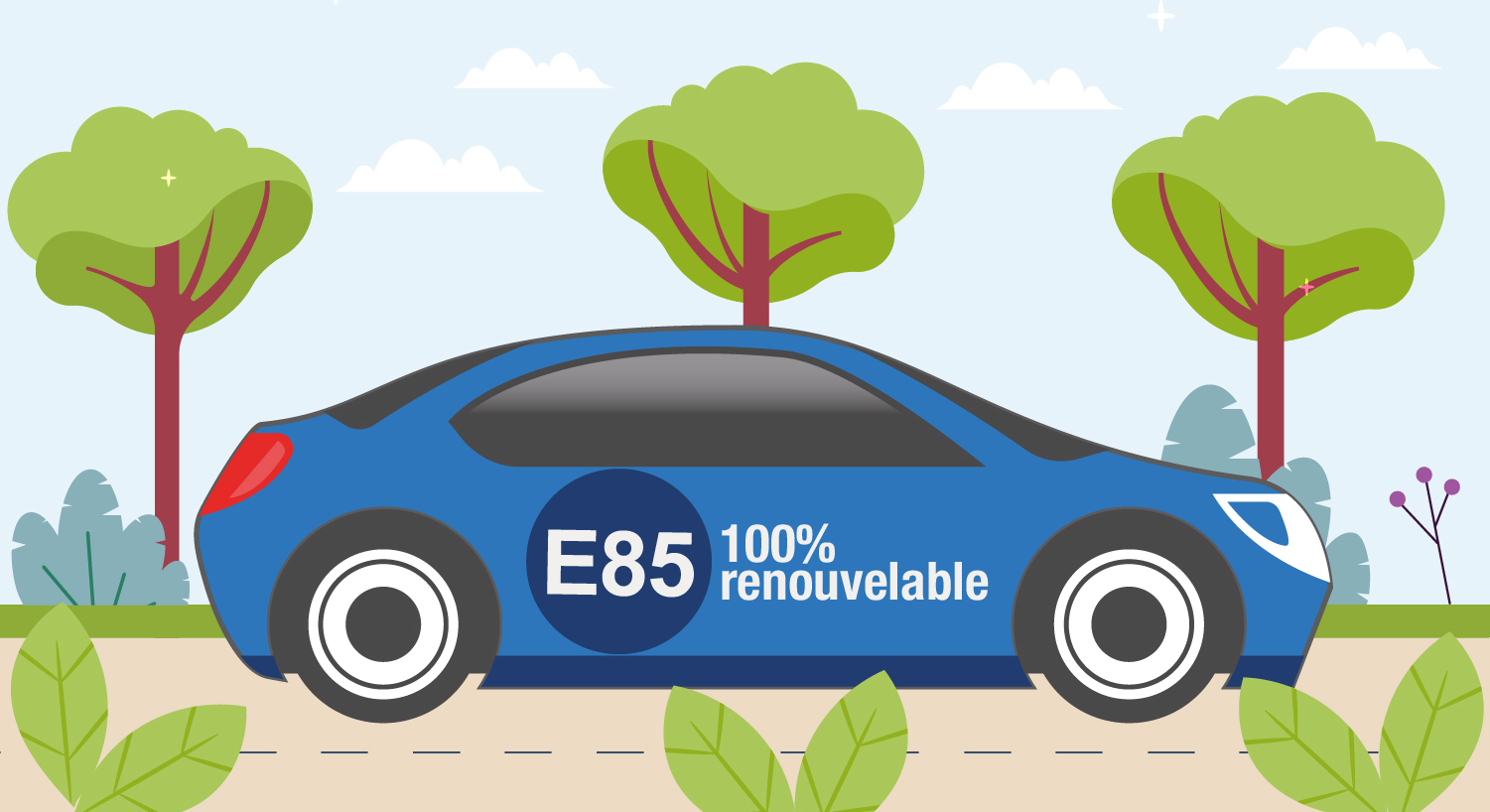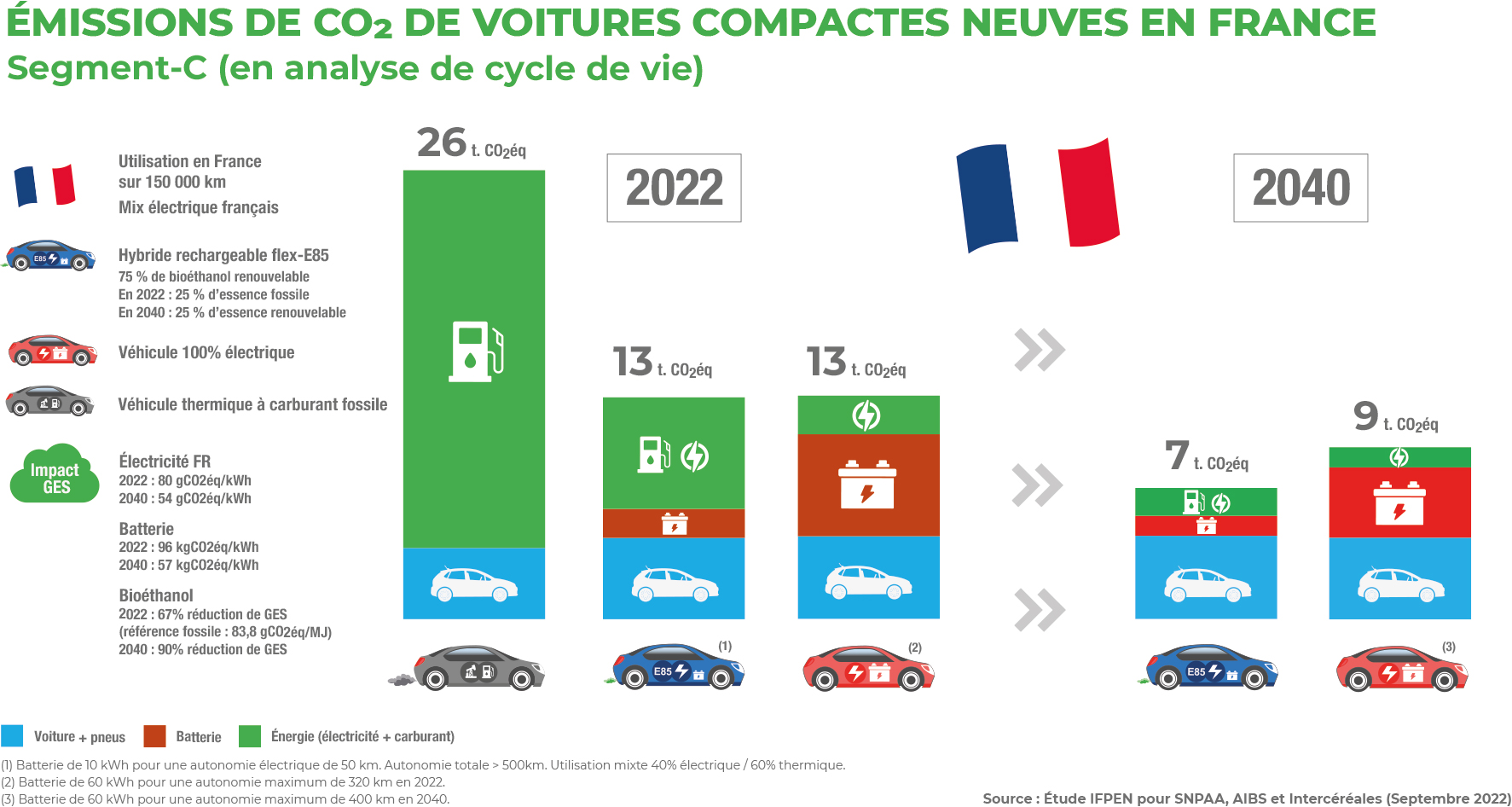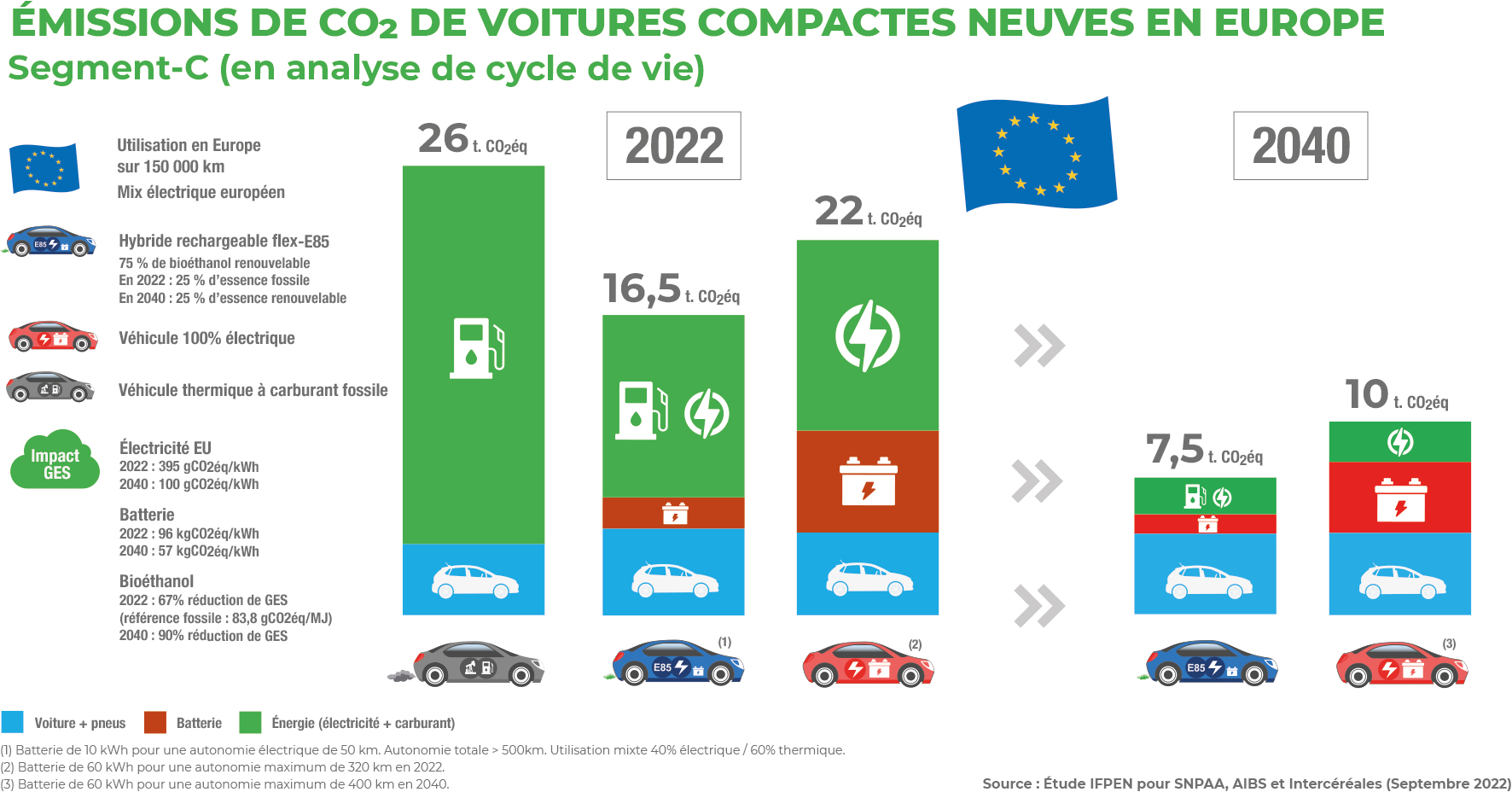THE FUTURE SUPERETHANOL-E85
100% RENEWABLE
An eco-friendly alternative to traditional fuels
Current Superethanol-E85 is a fuel made from bioethanol and gasoline. By regulation, it contains between 60% and 85% bioethanol, with the remainder being fossil gasoline.
With the development of sustainable aviation fuels (SAF), it is now possible to produce a100% renewable Superethanol-E85, by replacing the fossil gasoline portion with renewable gasoline, which is a co-product of SAF production.
This 100% renewable fuel will offer an eco-friendly alternative to traditional fuels, helping reduce CO₂ emissions and air pollutants.
The two IFPEN studies on 100% renewable Superethanol-E85
1) Study on the CO₂ balance in a life-cycle analysis
This study showed that for a C-segment vehicle, an E85 PHEV driving 60% of its kilometers in thermal mode is just as good for the climate as an electric vehicle with a 60 kWh battery using the French electricity mix. At the European level, the E85 PHEV is even better for the climate due to the higher carbon intensity of the European electricity mix. These findings hold true with both 2022 parameters and those projected for 2040, taking into account the expected progress.
This 100% renewable Superethanol-E85 fuel already exists in California, where it accounted for one-third of all Superethanol-E85 volumes sold in 2022.
Thus, 100% renewable Superethanol-E85 positions itself as a viable solution for decarbonizing the transport sector both today and after 2035, offering environmental performance comparable to that of fully electric vehicles.
2) Study on pollutant emissions
This study, conducted by the French Institute of Petroleum and New Energies (IFPEN), evaluated the environmental and technical performance of three types of 100% renewable Superethanol-E85. These fuels were tested in a commercial flex-E85 vehicle by replacing the fossil gasoline portion with three different renewable gasolines, two of which are derived from SAF production (bionaphtha and e-naphtha).
The study results indicate that these 100% renewable blends meet the requirements of the upcoming Euro 7 standard, scheduled for late 2026.
CO₂ regulation for vehicles by 2035
In 2023, the European Union adopted a regulation aiming to ban the sale of new cars emitting CO₂ at the tailpipe starting in 2035. However, this regulation leaves the door open for CO₂-neutral fuels — that is, fuels that do not emit fossil CO₂ — whose definition is still under discussion at the European level. This definition could allow the commercialization of vehicles running on 100% renewable Superethanol-E85, in addition to fully electric vehicles, after 2035.
Moreover, electrification alone will not be sufficient to meet all drivers’ needs, given the required resources and infrastructure. It will need to be combined with the use of CO₂-neutral fuels in hybrids and plug-in hybrids equipped with smaller batteries.




